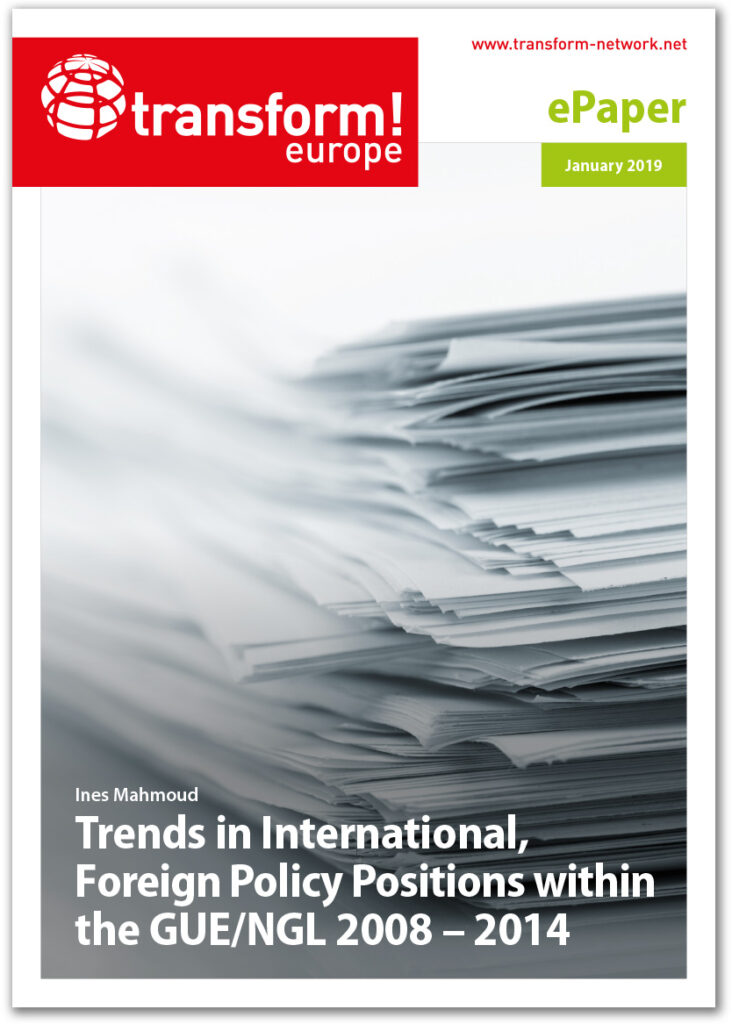With increased internationalism of the right-winged political spectrum in Europe being on the rise, the question of internationalism of the European left is becoming more present in the past years. A nativist versus internationalist debate defines contemporary politics.
The aim of this position paper will be to cluster and compare international foreign policy positions of two parties of the European United Left/Nordic Green Left (GUE/NGL), the German DIE LINKE and the French Communist Party (PCF) as part of the Front de Gauche (FG) on a timeline between 2008 and 2014. This timeline encompasses the 7th legislative period of the European Parliament from 2009 and 2014. Due to the significance and impact of the financial crisis 2008 however, the time frame for this research has been extended to 2008. DIE LINKE and PCF/Front de Gauche have been chosen as they are leftist parties representing the two economically strongest member states of the EU in the GUE/NGL who also provide the largest number of MPs in the GUE/NGL.
Please find the ePaper on the left/below (mobile version) in ‘Documents’ (English, PDF).
Table of Contents
1. Introduction
2. Methodology
2.1. Coding party manifestos
2.2. Analysing voting patterns of the GUE/NGL
2.3. Analysing websites and publications of the PCF, die LINKE and the GUE/NGL
3. Trends in International, Foreign Policy Positions of the Front Gauche (FG)
and the French Communist Party (PCF) 2008 – 2014
3.1. The FG party manifesto “L’humain d’abord” 2012
3.2. Analysis of the PCF and FG publications on their homepages
3.3. Voting loyalty of the FG to the GUE/NGL in international, foreign policy questions
4. Trends in International, Foreign Policy Positions of die LINKE 2008 – 2014
4.1. The party manifesto of die LINKE 2009
4.2. The party manifesto of die LINKE 2013
4.3. Analysis of publications of die LINKE on its homepage
4.4. Voting loyalty of die LINKE to the GUE/NGL in international, foreign policy questions
5. International, Foreign Policy Positions of the GUE/NGL
5.1. Foreign policy positions of the GUE/NGL 2008-2014
5.2. Voting patterns of the GUE/NGL
6. Conclusion
